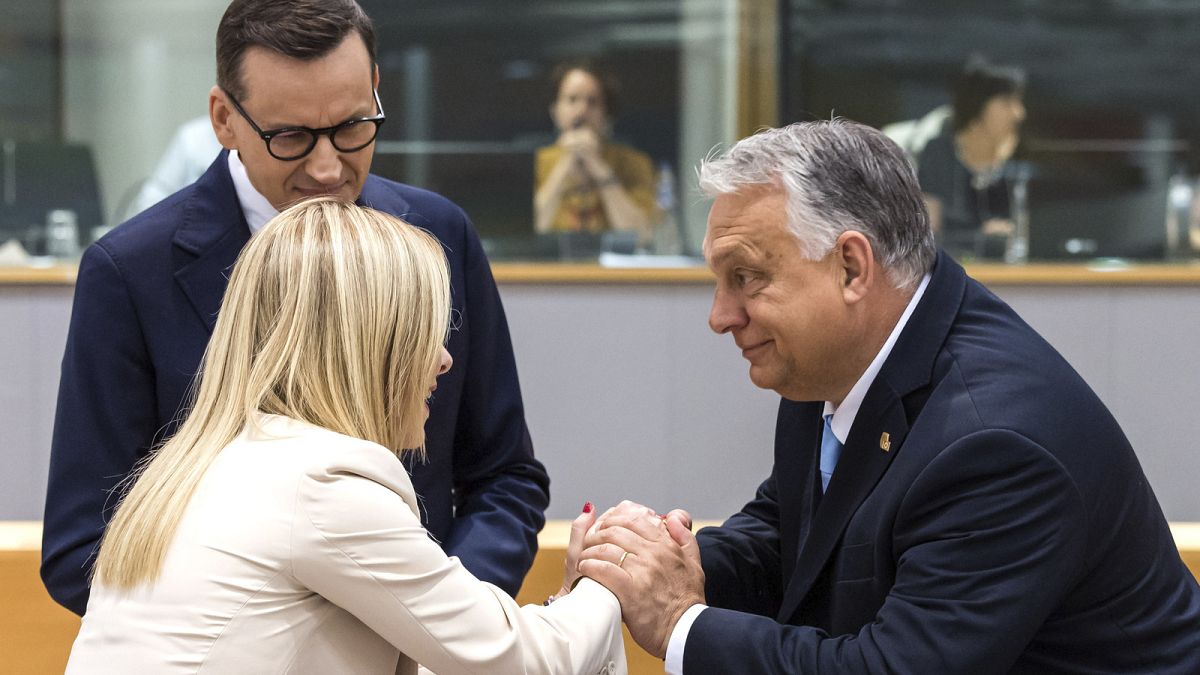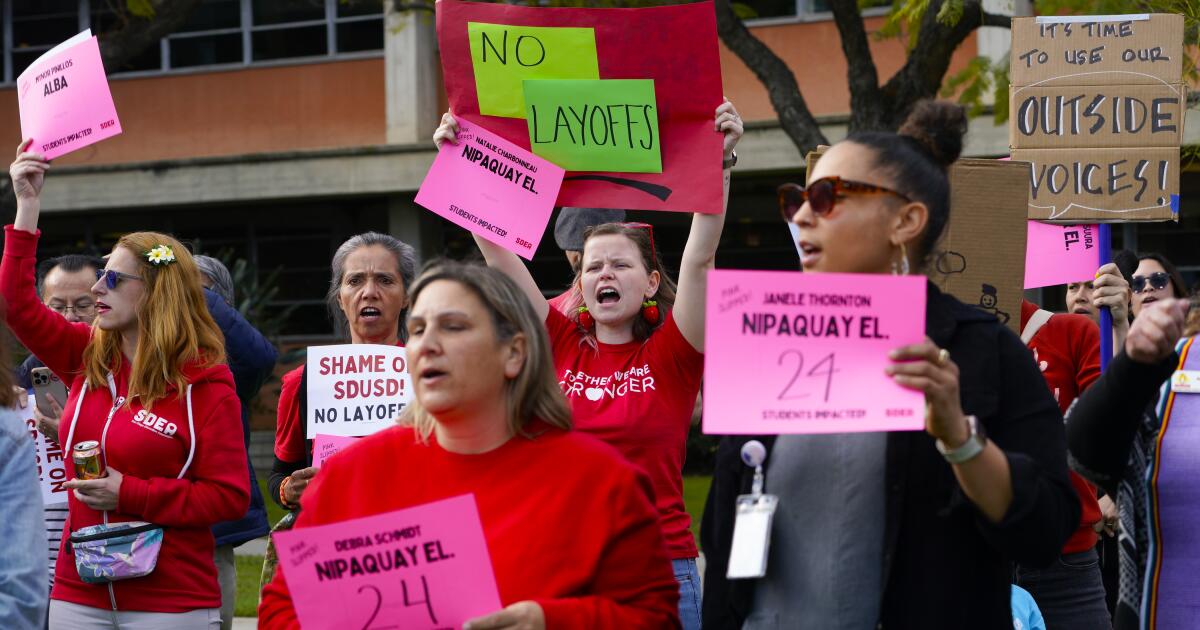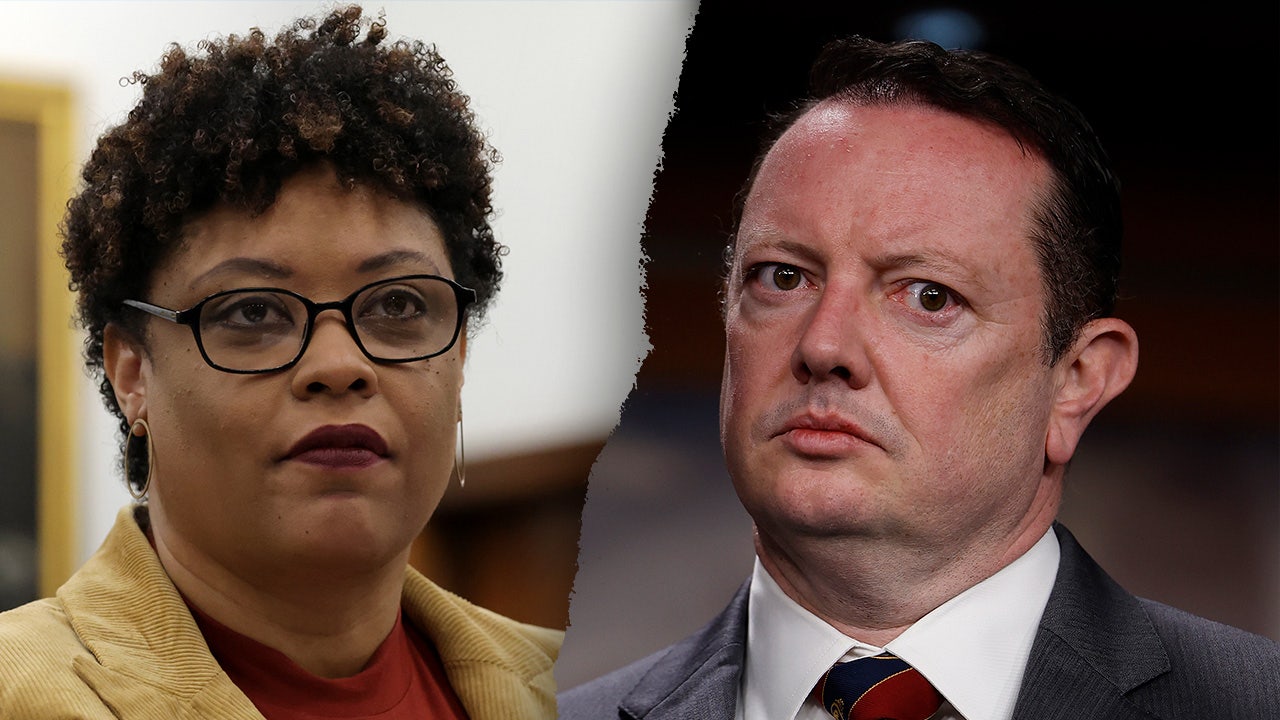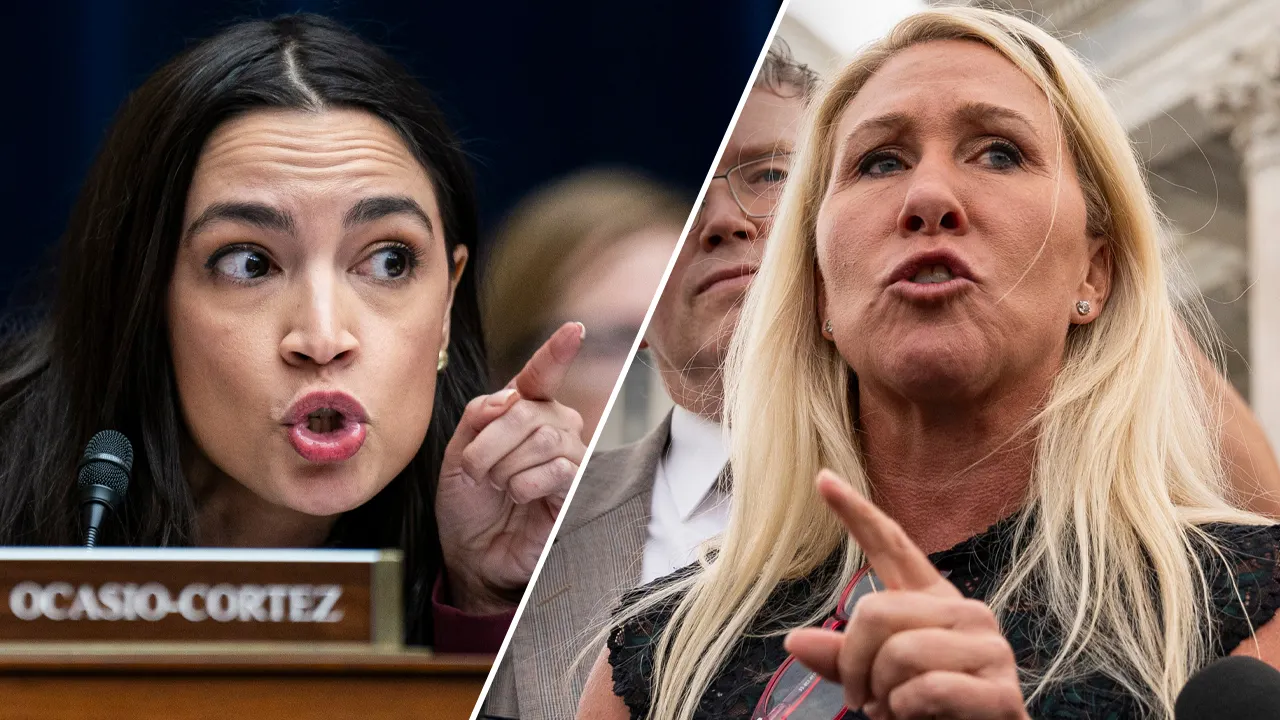World
Brussels opens Pandora’s box with €100 billion budget top-up request
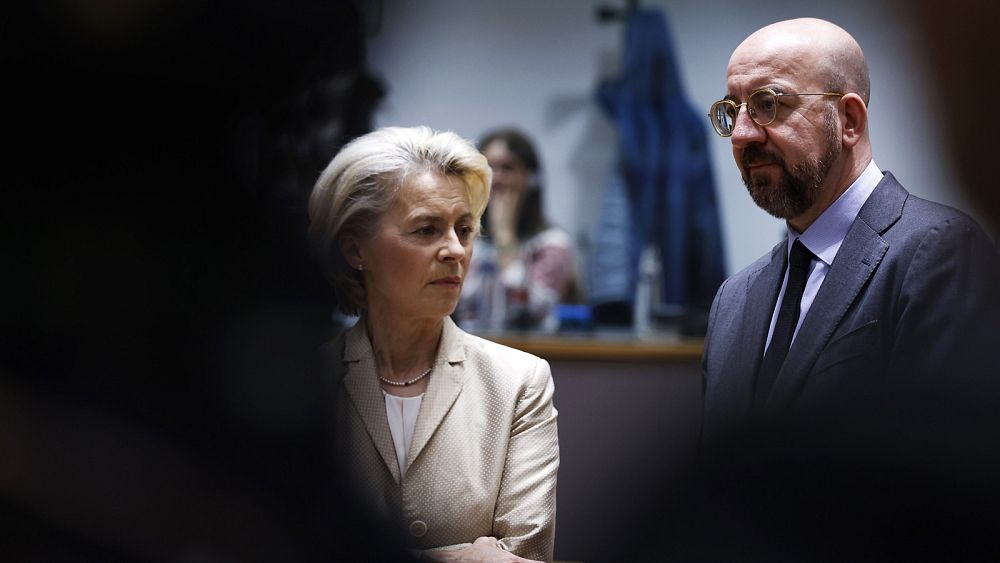
The European Union’s common budget is up for a review. But member states have little to no appetite for coughing up the €100 billion requested by the Commission. This is what’s at stake.
The budget for the 27-member bloc is approved for a period of seven years to guarantee long-term predictability and avoid the perennial back-and-forth between the capitals and the institutions.
Mask-clad EU leaders approved in 2020 a €1.074 trillion budget coupled with an extraordinary €750 billion plan to help member states recover from the COVID-19 pandemic following a marathon five-day summit that exposed deep rifts among member states.
But after a succession of crises, most notably a brutal war raging at the bloc’s doorstep, Brussels feels this number no longer reflects the economic reality.
That’s why the European Commission has proposed a review worth almost €100 billion, to support Ukraine, manage migration, cope with natural disasters and foster cutting-edge technologies.
“We are in a completely different world compared to 2020,” European Commission President Ursula von der Leyen said in June when she first unveiled the proposed overhaul. “This also shows in our budget – this world of multiple crises. We have been using this budget more than ever to be part of the solution (to) these crises.”
The Commission wants the top-ups to be approved before the end of the year, portraying the fresh money as a must-have to make the common budget flexible and resilient again.
Member states, however, are not buying it – at least not fully.
A meeting of the European Council in October, during which leaders did not mince words about their feelings for the proposed review, laid bare the uphill struggle that von der Leyen faces.
Cash under the mattress
Here’s what the EU executive is actually asking for:
- €50 billion for the Ukraine Facility, with €33 billion in low-interest loans and €17 billion in non-repayable grants to be doled out between 2024 and 2027. The financial aid would help fill the gaps in the Ukrainian budget, sustain essential services, rebuild critical infrastructure, attract private investments and speed up key reforms.
- €15 billion for migration management, including €3.5 billion for supporting Syrian refugees in Turkey and €2 billion for the Western Balkans.
- €10 billion to create the Strategic Technologies for Europe Platform (STEP), a common pool of money to promote EU-made cutting-edge technologies.
- €18.9 billion to repay the debt issued to bankroll the €750-billion recovery plan, which is now subject to much higher interest rates as compared to its launch in 2020.
- €3 billion to reinforce the Flexibility Instrument and cope with unforeseen crises.
- €1.9 billion to cover administrative costs.
Of this eye-popping €98.8 billion bill, €65.8 billion would have to be directly footed by member states. (The €33 billion in loans from the Ukraine Facility would be borrowed from the capital markets and repaid by Kyiv at a later stage.)
In the midst of an economic slowdown, steep energy prices and tighter monetary policy, the proposal has been met with suspicion and perplexity by most EU leaders.
“I think that the priorities defined by the European Commission (…) are the right ones (…) they are useful. The amount proposed today seems too high to me and therefore we have asked for a reduction,” French President Emmanuel Macron said at the October summit.
To get themselves off the hook, heads of state and governments quickly clung to the idea of re-deployment, i.e. using funds already approved but not yet spent under the 2021-2027 budget to pay for the proposed top-ups.
“For many member states, Germany included, it’s not understandable that we should always increase the budget. It is essential that we look at the available fund and how it can be reallocated or used differently,” said German Chancellor Olaf Scholz.
“What we’re saying is: reprioritise, reprioritise, reprioritise,” declared Dutch Prime Minister Mark Rutte, who famously led the “Frugal Four” coalition during the 2020 negotiations.
His Belgian counterpart, Alexander De Croo, said “What’s on the table is not acceptable for us” and warned his country might violate the bloc’s deficit rules if it were to pay up.
“It’s the (same) way the Commission looks at our budget. If we have too much deficit, they ask us to reprioritise and see if certain things can be done in a more efficient way. I think that also applies to the EU institutions,” said De Croo.
Von der Leyen conceded the final outcome would likely be a “mixture” of national contributions and redeployment but pointedly added this would result in “trade-offs” – code for programmes that could be chopped.
A non-paper drafted by Spain, which currently holds the EU Council’s presidency and moderates the talks, estimates that financing the entire review through redeployments would lead to a “general cut” of more than 30% in well-known programmes such as Erasmus+, Horizon Europe, EU4Health and humanitarian aid.
STEP things up
But it’s not all dark clouds on von der Leyen’s horizon.
Her €50-billion Ukraine Facility has received a near-unanimous warm welcome from EU leaders, who see it as a valuable tool to make the bloc’s support for the war-torn country more predictable in the long run. (And also because the Facility would make them cough up just €17 billion for the grants.)
Only Hungarian Prime Minister Viktor Orbán has publicly come out against the proposal, while Slovakia’s new premier, Robert Fico, has asked for additional safeguards to protect the cash from Ukraine’s high levels of corruption.
“The Commission wants more money so that they can give it to the integration (of migrants) and to the Ukrainians,” Orbán said. “We do not support any of them, the professional and political arguments are lacking. We will reject them.”
The other envelopes are proving to be a harder sell.
While governments agree more money for migration is required, particularly in the context of relations with countries of origin and transit, the majority has not shown a clear willingness to underwrite the €15-billion top-up.
This is worrying Southern nations whose asylum systems are often overburdened and under-resourced. During the October summit, Italian Prime Minister Giorgia Meloni told reporters that migration is “for us a priority.”
STEP, meanwhile, has ignited much less enthusiasm.
As the current budget already earmarks several initiatives for the digital transition, the appetite to add an extra €10 billion for homegrown tech is low, even if governments frequently complain about the EU’s entrenched reliance on foreign-made imports.
Portuguese Prime Minister António Costa is among the few vocal advocates for STEP, arguing having a collective pool to bankroll new tech is “important” to mitigate “asymmetries” posed by the uneven distribution of industrial subsidies, which are heavily concentrated in Germany and France, and be able to compete with the US and China.
Regarding the €19.8 billion requested to pay for interest costs, countries do not question the necessity in itself – as this is imposed externally by the capital markets – but some wonder if the money could be found somewhere else in the existing budget.
The €1.9 billion for administration appears dead on arrival. “The majority of member states reject the Commission’s proposal,” reads the non-paper of the Spanish presidency.
The budget review needs 1) the unanimous approval of all 27 member states and 2) the consent of the European Parliament. MEPs have asked for an extra €10 billion on top of the Commission’s €100-billion review, exposing the vast distance in the thinking of the three EU institutions.
Acknowledging the diverging views around the table, European Parliament President Roberta Metsola said the fraught negotiations were a “natural, traditional dilemma” for the bloc and warned against cutting popular programmes like Horizon Europe and Erasmus+ in the run-up to the EU elections in June.
“We absolutely cannot tell our citizens that, on the one hand, we’re willing not to spend anymore but, at the same time, we cannot find a solution to pay because we are, let’s say, over-extended in terms of our debt,” Metsola said after taking part in the October summit.
“I don’t see a way out yet.”

World
Taking presidential debates out of commission's hands virtually guarantees fewer viewers
NEW YORK (AP) — The planned presidential debates between Joe Biden and Donald Trump that were swiftly organized this week are a coup for CNN and ABC News — but a virtual guarantee they’ll be among the least-watched general election contests ever.
The two campaigns skirted the Commission on Presidential Debates, which has organized the events for 36 years with the goal of getting them before as many eyes as possible.
ABC, which has assigned David Muir and Linsey Davis as moderators for a debate scheduled for Sept. 10, has said it will make it available for simulcast on any U.S. television network or streaming service that wants it. CNN had not said by early Friday whether it will do the same for its debate, set for June 27 with Jake Tapper and Dana Bash as questioners.
A debate between Vice President Kamala Harris and whomever former President Trump chooses as his running mate is expected to air this summer on CBS.
Each of the two debates between Biden and Trump in 2020 were carried on at least 16 networks, according to the Nielsen company. The first was seen by 73.1 million viewers, the second by 63 million.
Debates prior to a party’s nominating process, which Trump skipped this year, are usually organized and broadcast by individual media organizations. The tradition has been different for those organized by the commission during general election campaigns, said Kathleen Hall Jamieson, director of the Annenberg Public Policy Center at the University of Pennsylvania, and member of a group of experts Annenberg organized a decade ago that explored ways to increase viewership.
What to know about the 2024 Election
“It’s the public’s debate,” Jamieson said.
For CNN leaders, there’s a great temptation to keep it for themselves. It would likely be the most-watched event ever on a network that is struggling in ratings. CNN’s chief executive, Mark Thompson, made a point in tying the debate to the brand on Wednesday when he announced the agreement to hold it during a sales presentation to advertisers in New York.
“When people have something important to say,” Thompson said, “they say it on CNN.”
CNN said Wednesday the debate would also air live on its international and Spanish-speaking networks, and stream on CNN Max and CNN.com.
The pool of people available to watch on CNN’s main television network is dwindling due to cord-cutting of cable and satellite services. CNN was available in 71% of American homes with television in May 2020; this month it’s just under 54%, Nielsen said.
Keeping the debate on CNN alone would run up against stout criticism that it’s not the public-spirited thing to do, something ABC moved quickly to avoid.
Political polarization that has spread to the media would also likely cut into viewership if the event was not shared, Jamieson said. Would Fox News viewers, after years of hearing CNN criticized by some of their favorite politicians and media figures, turn to CNN for a debate or skip it entirely?
It’s still not certain how many other networks will carry the debates even with the opportunity. Only PBS has said that it would; other networks have yet to give a public commitment.
Some of those executives would have to swallow hard to carry another network’s personalities on their air, with the risk some of their regular viewers might like them and switch allegiances. Pressure to carry the debates for public service reasons would be intense, though.
Despite worries about how many people will watch, Jamieson said there’s some irony in that there’s a lot to like about the proposed ground rules for the event. So far, the plans are to hold them in television studios without an audience.
That’s something the Annenberg group had proposed a decade ago, saying an audience that reacts to what the candidates are saying is often a distraction, and that audience is usually packed with partisans on both sides.
If the two campaigns agree to rules where one candidate’s microphone would be shut off while his opponent answers a question, it would go a long way to solving what has been a more frequent problem recently with politicians interrupting and talking over an opponent, she said.
“If someone had told me that there was going to be some good news about political discourse this year, I would have told them they were delusional,” she said.
___
David Bauder writes about media for The Associated Press. Follow him at http://twitter.com/dbauder.
World
First brewery opens in Abu Dhabi as parts of UAE loosen alcohol laws

In 2018, Chad McGehee opened Side Hustle Brews and Spirits, an Abu Dhabi-branded brewery and distillery with funky camels on its cans and playful names familiar to anyone living in the United Arab Emirates.
The only problem was it was illegal to produce alcohol in the country, so his company made its hoppy India pale ale in the United States and then imported it to the UAE for sale.
That’s all changed as Abu Dhabi has overhauled its laws to allow for the micro and craft breweries that have taken the rest of the world by storm, part of a wider reconsideration of alcohol policies in the Islamic nation increasingly drawing tourists. And McGehee’s dream of IPAs in Arabia became a reality — though it took hard work as they were the first to open.
NEW YORK WEIGHS ENDING POST-PROHIBITION LAW, POTENTIALLY MAKING STATE’S DRY TOWNS A THING OF THE PAST
“The government had created a regulation around fermentation, but the steps of getting a permit, the steps of inspection, all of these things were not put on paper yet. So that had to be built out as we were going through this process,” McGehee said on a recent afternoon at his brew pub on Abu Dhabi’s Al Maryah Island.
Abu Dhabi has long been considered by those living in the UAE to be more buttoned-up than the rambunctious neighboring emirate of Dubai, home to nightclubs, beach bars and pubs drawing tourists and residents to imbibe. In the seven emirates of the UAE, Sharjah outright bans the sale and consumption of alcohol, like neighboring Saudi Arabia, as well as Iran and Kuwait.
But beginning in 2020, Abu Dhabi changed its policies. It eliminated its licensing system for alcohol purchases for drinkers to boost sales and tourism during the coronavirus pandemic. Eliminating the licenses allowed Muslims, if they chose, to drink, as well as decriminalized alcohol possession for those without a license.
Mitchell Dougherty, the brewmaster at Side Hustle Brews and Spirits, pours a pint of beer at his brew pub in Abu Dhabi, United Arab Emirates, on May 13, 2024. (AP Photo/Malak Harb)
“I think progression in this country is par for the course, they’re always moving things forward,” said Nadeem Selbak, one of the partners at Craft, which is Side Hustle’s brew pub.
The Emirates still maintains a strict no-tolerance policy on drunken driving and public intoxication. Islam also considers alcohol consumption as “haram,” or forbidden.
But alcohol sales long have been a major driver of tax revenue and a moneymaker for the UAE. Dubai Duty Free, for instance, sold 6 million cans of beer last year, as well as 3.8 million bottles of liquor and 2.3 million bottles of whiskey for thirsty travelers.
But despite that demand, there was no local equipment available to open a brewery in the UAE. McGehee ended up importing almost everything for the brewery, nearly all of it coming from the U.S.
Abu Dhabi represents a completely untapped market for Side Hustle.
“The idea for me was like going back in time, when I started almost 20 years ago,” said Mitchell Dougherty, Side Hustle’s brewmaster.
At any given point, Craft has 14 beers on tap. So far this year they have brewed 34 and aim to reach up to 100 by the end of the year. The names of the beers include some winking reminders of life in the UAE, including one called “Massage Card Ninja” — a nod to business cards showing scantily clad women that appear under car windshield wipers in some Dubai neighborhoods.
McGehee said the different types of beers include ingredients from the Czech Republic, the United Kingdom, Japan and the U.S., covering a variety of palates for their international customers.
“If you look at Abu Dhabi, you have people from almost 200 countries,” he said. “They all have their own definition of what beer is, what craft beer is, or what lager is, or what IPA is, so we’re trying to cater to as many of them as possible.”
World
Tunisian lawyers defiant as government cracks down on all voices

Tunis, Tunisia – Hundreds of black-clad lawyers filled the narrow Boulevard Ben Bnet outside Tunis’s bar association headquarters as they protested the arrests of two of their own.
Thursday was the second day of strikes in a dark week for Tunisian civil society as security forces swept up journalists and activists in what rights groups have characterised as a further crackdown on dissent.
“The regime’s machinery is operating very efficiently, meaning it devours anyone who has a critical perspective on the situation, … lawyers, journalists, bloggers, citizens or associations,” Romdhane Ben Amor of the Ligue Tunisienne pour la defense des droits de l’homme (LTDH, the Tunisian League for the Defence of Human Rights) said.
Ben Amor said President Kais Saied, like populists the world over, sides with those he sees as the people against the elites, encouraging them to blame others for their difficulties.
“So, of course, Kais Saied from now until the elections [scheduled for November] has a long list of individuals, associations, parties and journalists whom he will gradually criminalise to always maintain the sympathy of his electoral base,” Ben Amor said.
The purge
Saied, a former law professor elected in 2019, swept to power on widespread Tunisian anger and frustration over politics regarded as corrupt and self-serving.
After dismissing parliament in July 2021, Saied began rebuilding Tunisia according to his design, ignoring the acute, unresolved financial crisis that led to its 2011 revolution. He blamed “international plots against Tunisia”, rewrote the constitution and purged his critics in politics and the media.
He oversaw the arrest of leaders of the self-styled Muslim Democratic Ennahdha party, including former parliamentary Speaker Rached Ghannouchi as well as the party’s archrival, Abir Moussi.
He weakened the previously vibrant media, introducing Decree 54, criminalising the publication or broadcast of any information the state subsequently deems false. And he has battled the judiciary, restructuring it to his own design.
In the protesting throng on Thursday was Lamine Benghazi of Avocats Sans Frontiers (Lawyers Without Borders).
“The wave of repression we witnessed this week clearly marks a new threshold for Saied and Tunisia,” Benghazi said as the noise of the crowd almost drowned him out.
“Those parts of civil society that avoided the repression that followed the [July 2021 events] now seem to be the primary targets of the authorities. Arrests, raids and investigations on NGOs working on migrant rights have all multiplied over the last few weeks.”
The outlook for Tunisia’s civil society, whose leads were awarded the Nobel Peace Prize in 2015, is grim, he said.
“Our fear is this crackdown will broaden to other groups, especially those working on democracy and rule of law and who are critical of the direction Tunisia is taking. The fact the discussions over the decree governing associations have resumed as civil society is under attack is no coincidence,” he said.
Benghazi referred to a law that parliament – now in a vastly weakened state – has long been discussing. If passed, it would force civil society groups to seek permission from authorities to operate, Amnesty International said in October.
Arrests denounced
Anger was tangible among the protesters outside the imposing colonial courthouse. Slogans from the 2011 revolution rang out – “The people want to topple the regime” – as demonstrators denounced the treatment of their colleagues.
Sonia Dahmani was seized at the bar association on Saturday by masked police who stormed the building in front of television cameras to arrest her, reportedly in connection to a passing quip she had made about Tunisia on a television programme.
Lawyer Mehdi Zagrouba was taken on Monday after an initial national strike by lawyers to protest Dahmani’s arrest. Witnesses said police again violently entered the bar association, breaking windows and doors before detaining Zagrouba.
Zagrouba had been with Dahmani during her court appearance that day and active in the strike. The Ministry of the Interior charged him with verbally and physically attacking the police, which his defence denied.
Video of Zagrouba’s late-night arrest shows him being taken on a stretcher from the bar association, and sources told Al Jazeera that a photographer covering the event had his camera seized.
On Wednesday, Zagrouba’s lawyers told a court he had been tortured before he collapsed and was taken to hospital, forcing the hearing’s postponement.
According to the Tunisian bar association, Zagrouba had “traces of physical violence on different parts of his body, which were examined by the investigating judge, confirming that he was tortured during his detention”.
“The Tunisian authorities have managed to subordinate the judiciary … and to effectively turn courts and the prosecutor’s office into tools of oppression,” Said Benarbia, director of the Middle East-North Africa programme at the International Commission of Jurists, told Al Jazeera.
“By targeting independent lawyers, the authorities are dismantling the remaining pillar on which the fair administration of justice stands, …. part of a wider campaign to intimidate and silence the legal profession, one of the last lines of defence against the government’s crackdown,” he added.
In a statement to local radio, the Interior Ministry denied that Zagrouba had been assaulted at any point and threatened to prosecute anyone sharing false information.
Crackdown after crackdown
On the same evening as Dahmani’s arrest, TV and radio presenter Borhen Bsaies and political commentator Mourad Zeghidi were also arrested under an “anti-fake news” cybercrime law. Bsaies’s lawyer said no proper evidence had been offered to show his client had violated the law.
A judge ruled on Wednesday that both would be held until May 22 on charges of having breached Decree 54.
Bssais and Zeghidi are the latest in a long line of journalists accused of breaching Decree 54 or similar charges.
According to Zied Dabbar, head of the National Union of Tunisian Journalists, at least 60 journalists and commentators have so far been summoned under the law.
Among them is radio host Haythem El Mekki, who is being pursued after saying in April last year that the Sfax morgue was unable to cope with the number of refugee bodies it was receiving.
Those found guilty of having breached Decree 54 face a fine of 50,000 dinars ($16,000) and a prison sentence of five years. The prison sentence could double to 10 years if the offence involves a public official.
“Tunisian authorities must urgently reverse this significant backsliding on human rights,” said Heba Morayef, Amnesty’s regional director for the Middle East and North Africa. “They must cease this judicial harassment and release all those detained solely for the exercise of their freedom of expression and freedom of association.”
Tunisia is also witnessing an influx of sub-Saharan Africans who arrive hoping to catch a boat to Europe – and a purge of groups defending them.
On May 6, Saied repeated claims, without evidence, to his security council of “plots against Tunisia” pertaining to the presence of sub-Saharan Africans.
On the same day, Saadia Mosbah, president of the anti-racism organisation Mnemty (My Dream) and Mnemty programme coordinator Zied Rouin were jailed on “terrorism” and money laundering charges.
The following day, Human Rights Watch said, the president and vice president of the United Nations-partnered Tunisian Refugee Council were arrested after inviting Tunisian hotels to bid to accommodate refugees.
This crackdown on their advocates comes as police persecution of the thousands of Black refugees and migrants in Tunisia increases, including deporting them to Libya, which Saied confirmed.
Mosbah remains in custody. Rouin was released shortly after his arrest.
European backing
As Tunisia retreats from the democratic gains of its revolution, it may have lost some of its sheen, but its status as a transit point for tens of thousands of sub-Saharan African refugees means it will remain a priority for European politicians who fear arrivals from “the south” on their shores.
Far-right ItalianPrime Minister Giorgia Meloni has visited Tunisia many times, most recently in April, to meet with Saied to discuss stemming migration in Tunisia before it proceeds north.
Meloni’s eagerness to support Saied is matched only by that of the European Union, which has made millions of euros in financial aid available to help shore up Tunisia’s economy and border security despite rights abuses by the government being well documented.
Nevertheless, both the EU and the United States Department of State have expressed concern over these latest purges with State Department spokesperson Vedant Patel saying the raids are “inconsistent with what we think are universal rights that are explicitly guaranteed in the Tunisian Constitution and we have been clear about at all levels”.
No mention has been made of any further action.
-

 Politics1 week ago
Politics1 week ago'You need to stop': Gov. Noem lashes out during heated interview over book anecdote about killing dog
-

 Politics1 week ago
Politics1 week agoRFK Jr said a worm ate part of his brain and died in his head
-

 World1 week ago
World1 week agoPentagon chief confirms US pause on weapons shipment to Israel
-

 News1 week ago
News1 week agoStudents and civil rights groups blast police response to campus protests
-

 World1 week ago
World1 week agoConvicted MEP's expense claims must be published: EU court
-

 Politics1 week ago
Politics1 week agoCalifornia Gov Gavin Newsom roasted over video promoting state's ‘record’ tourism: ‘Smoke and mirrors’
-

 Politics1 week ago
Politics1 week agoOhio AG defends letter warning 'woke' masked anti-Israel protesters they face prison time: 'We have a society'
-

 Politics1 week ago
Politics1 week agoBiden’s decision to pull Israel weapons shipment kept quiet until after Holocaust remembrance address: report
